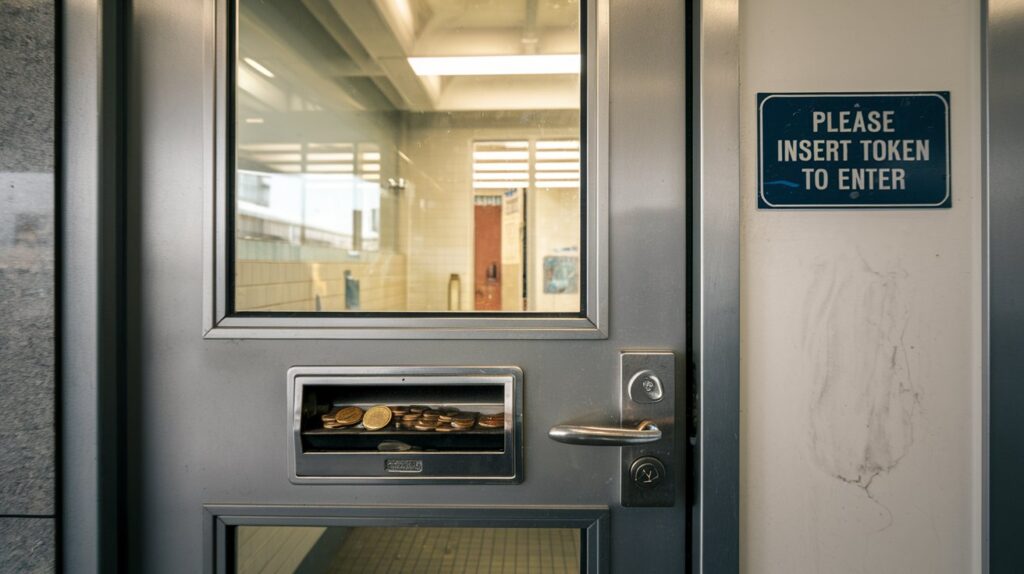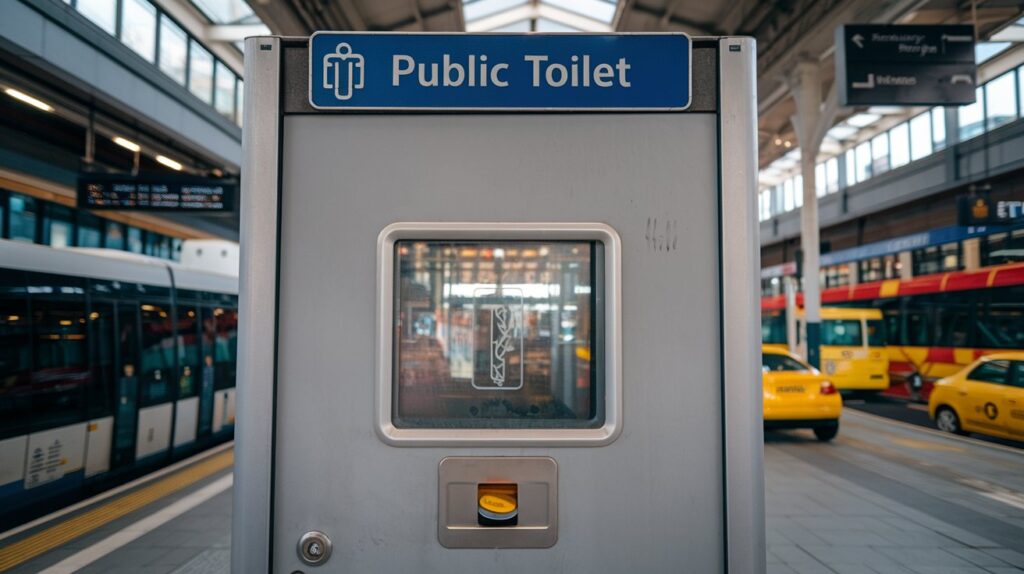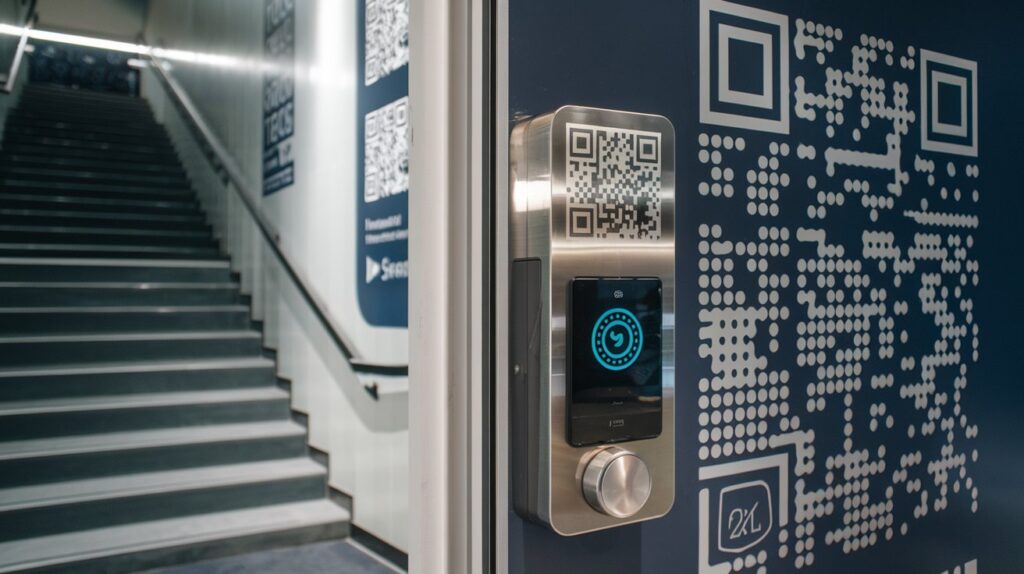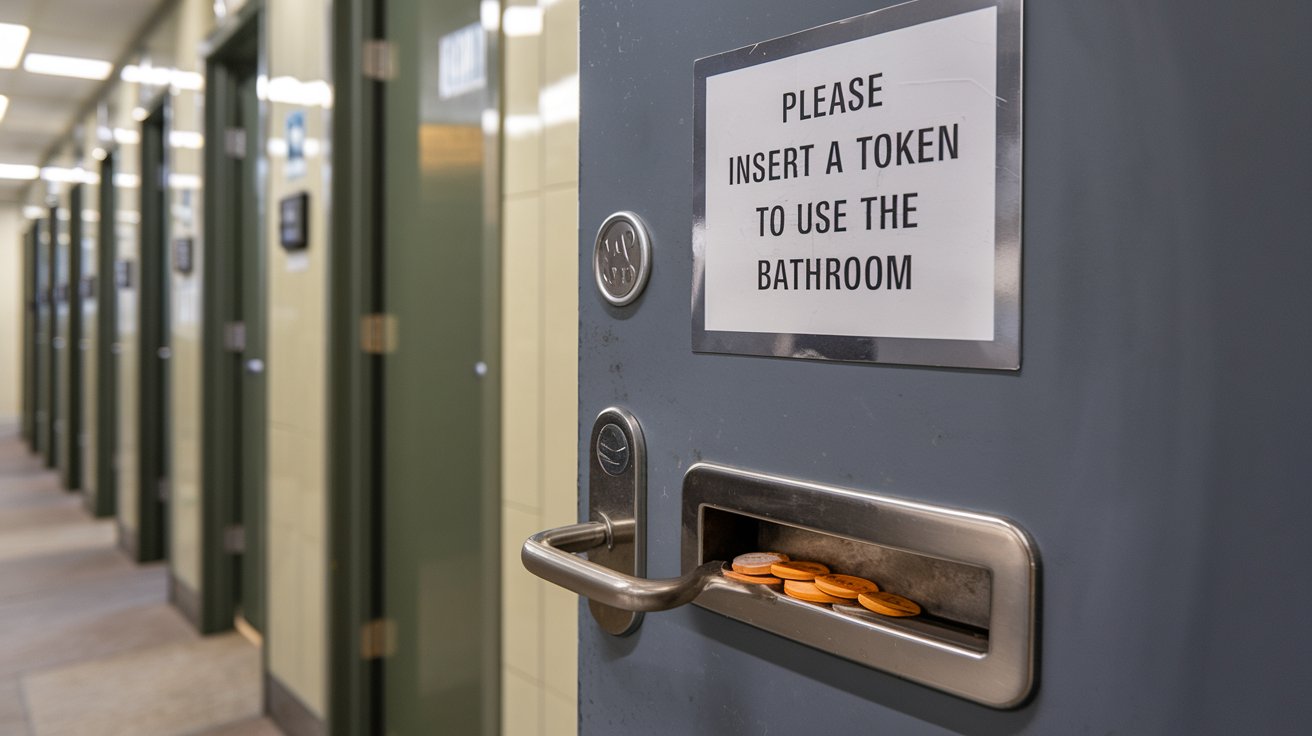Token Operated Bathroom Door
Controlling access to public bathrooms is difficult, even more so in high traffic spots where cleanliness or hygiene and security and upkeep are primary factors. Bathroom doors that operate on tokens are a simple and or efficient way to do away with these problems. This means you cannot just walk through the door by opening it yourself, instead you would need to have with you a token or coin that is used to open it which makes sure no one abuses or uses the space who aren’t full-fledged users themselves. In particular, they work well in public places like train stations, shopping malls, parks and also in restaurants.
In this guide, we cover all there is to know about token-operated bathroom doors including how they work, their benefits and more — along with some quick tips on installation & possible alternatives. So, let us get into why this system is properly gaining popularity and the manner it could improve public facilities management.
What Is a Token-Operated Bathroom Door?

An entry system for a bathroom door requires a token or coin to be inserted into a slot in order to grant access. This system has the capability to function independently or as a component of a comprehensive access control system. Tokens are commonly given by the establishment, covered in a fee, or bought for a small price.
These doors are often found in busy areas where controlling access is important to keep things clean, stop damage, and cover maintenance expenses.
How Do Token-Operated Doors Work?
- Insert Token: The users are provided with a specific token or coin, and they have to insert it in the slot on the door mechanism.
- Token Validation: The system verifies the token to confirm it meets the pre-set criteria.
- Unlocking: The door unlocks if the validation was performed successfully and allows the user to gain access.
- Automatic Re-Locking: Once the user is inside and the door drops down, it locks again automatically preventing anyone from entering the car unauthorized.
Others can provide features like a timer to notify how long the door should remain open or even in case of emergencies, backup keys.
Benefits of Token-Operated Bathroom Doors
1. Enhanced Hygiene
This can help prevent overcrowding and also misuses that encounter, keeping the bathroom clean as well as in appropriate condition for its consumers. This is crucial at high-footfall locations.
2. Cost Efficiency
Token schemes give an opportunity for businesses and public amenities to recuperate some of the costs associated with maintenance. Tokens can also be sold at a small cost or incorporated into widespread use to customer service such as with any purchase made in a café.
3. Improved Security
Such systems lower the chance of vandalism and wrongful usage by restricting entry only to those individuals with tokens. This safeguards the facility and enables legitimate users to use it, when they need.
4. Simple Operation
The token-operated system is very easy to use and does not need technical knowledge. It is very easy to use by people of all ages, you just need to insert your token.
5. Customizable Options
Tokens can be tailored with a facility’s branding, which personalizes and protects them from counterfeiting. It is also a good moment for built-in advertisements as well.
Where to Use Token-Operated Bathroom Doors

1. Transport Hubs
We can see token operated doors in Airports, Train stations & bus terminals where it would be easier to audit the crowd and get a clean washroom with proper functionality.
2. Shopping Malls
Tokens control access to customers, and the case in commercial places where the facilities may be misused by non-patrons.
3. Parks and Recreation Areas
Such user fees allow public parks to better upkeep their restrooms — during events or busy hours when foot traffic is high.
4. Restaurants and Cafes
Many small businesses have token systems in place so that only customers who pay receive a key to the toilet.
5. Event Venues
Temporary facilities at venues such as concerts, fairs and exhibitions could also install bathrooms in a more controlled manner using payment tokens.
Steps to Install a Token-Operated Bathroom Door
1. Select the Right System
Select a System that Meets Your Facility’s Unique Requirements Take into account estimated users, power supply (electric or battery powered), material expansion.
2. Professional Installation
Hiring professionals to install your system the right way. This prevents seamless system operation and potential problems.
3. Provide Clear User Instructions
Signs with simple directions, easy to follow way marks inside and outside the door This can be with small diagrams or short text to inform users how the token needs to be inserted and they’ll have access.
4. Set Up a Maintenance Schedule
The system also requires routine maintenance for it to be in working order. This means cleaning the token slot, testing that its mechanism works, and doing something about wear and tear at once.
5. Plan for Emergencies
Provide a physical fail-safe — like a key for manual access, or an RF backup, aimed at getting users out in the event of difficulty.
Tips for Using Token-Operated Systems
- Keep Tokens Accessible: Make Tokens Easily Accessible. This can mean setting up a vending machine, a customer service desk where they can acquire tokens easily, or made available atoms with some regular purchasing.
- Monitor Usage: If your system provides this data, you should be able to track usage patterns and spot any problems that need attention.
- Educate Staff: Prepare employees for supporting users with problems they may encounter in the future.
Alternatives to Token-Operated Systems

Token-operated bathroom doors are a well-known, albeit crude, means to this end; here we can merely mention other systems that might play the same role:
- Digital Payment Systems
Door unlocking is achieved through a mobile app or contactless payment. - Code-Based Access
Users receive a special code from the facilities to enter the toilet. This often happens at restaurants and gas stations. - Membership Cards or Passes
It provides access via swipe card (like you would use in a gym or office building). - Free Access with Timers
While some other restrooms allow users to access them free of charge, they use timers to control the time between which the door stays unlocked or the length of time allowed in utilizing the facility.
Addressing Concerns About Token-Operated Doors
1. What if Someone Loses Their Token?
Instead, facilities need backups, either an attendant to provide assistance or a manual override solution.
2. Are These Systems Accessible for Everyone?
Of course, most accessibility doors that use a token are designed to meet the pertinent standards and they specialize in wide slots, simple mechanisms, and other accessibility enhancements for individuals with disabilities.
3. Are Tokens Recyclable?
In many instances, however, tokens are reusable. These facilities can prompt people to return tokens so they can be recycled or reused.
4. Do Token-Operated Systems Work During Power Outages?
Systems that are battery-powered or manual can keep working during power outages.
Why Token-Operated Systems Are a Growing Trend
With population growth, public spaces are changing; therefore the need for new ways to control toilet access is necessary. Branded with inexpensive and easy-to-use token-operated bathroom doors, they are an affordable option for any establishment. They merge user convenience with site operation control, defaulting to a win-win.
Conclusion
Bathroom doors that work with tokens are a great public restroom management solution since it is both smart and eco-friendly. Controlled access, improved hygiene, reduced waste and a revenue stream for businesses to recoup maintenance costs. Their user-friendliness, cost-effectiveness, and low adaptability to types of environment are making these systems a critical component of new public places.
Whether you are managing a large busy train station, a little café shop or community park, having a token operated bathroom door can enhance the experience of not just users but also facilities managers. Using such a system allows for cleaner, safer and much more efficient restrooms making it an ideal addition to any venue.
Why are token-operated doors useful in public spaces?
They help manage access, reduce misuse, improve hygiene, and allow facilities to recover maintenance costs.
Can token-operated doors work during power outages?
Yes, many systems are battery-operated or have manual override options for emergencies.
What if someone loses their token?
Facilities usually provide a backup solution, such as a manual key or an attendant to assist.
Are token-operated systems accessible for people with disabilities?
Yes, most systems are designed with accessibility features like large slots and easy-to-use mechanisms.
